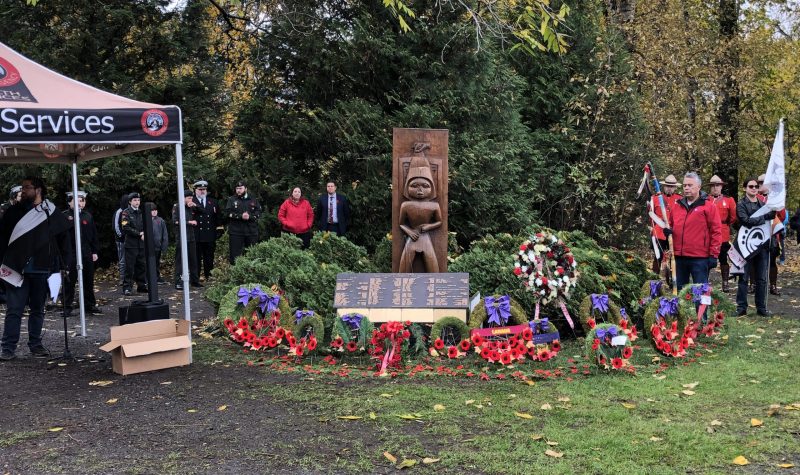Indigenous Veterans Day (Nov. 8), first observed in 1994, honours Indigenous veterans who fought in wars that Canada has played integral roles in.
Maggi Davies, UFV’s Alumni Engagement Coordinator, says that the relatively new separate day of reflection from the traditional Remembrance Day is an institution “that Canada is still struggling” to incorporate during this week of remembrance.
To Davies, the separate day lets her reflect on ancestors that may have enlisted under false names to avoid disenfranchisement.
“For my family, it left us wondering who they were, and we have no answers,” Davies says. “Having a specific day where I can remember those uncles who I don't know those details of - and then having the day November 11th to remember all of the family members that I had that have served, and I know their records, I can find their records - I can honour their contribution.”
Chawathil Councilman Aaron Pete believes the day is a unique way to reflect on Indigenous people sharing values with others who fought - a misunderstanding that has led to some contention in Remembrance Day celebrations.
“One of the valuable pieces is there is currently this felt sense by many people that… Indigenous people are disconnected somehow from society, and that we need to reconcile,” Pete says. “What this day shows is that we've been working towards that, and our ancestors have been working towards that for a very long time.”
“When we're talking about Remembrance Day, and thinking about that, despite all of the things that Canada did wrong to Indigenous people, we still fought for the same underlying values, even if Canada wasn't standing up for them, themselves, within their own territory. We were still willing to do that despite all the wrongs that we had experienced, which should speak as…a sign of hope for the future.”
Listen here for the full story:


